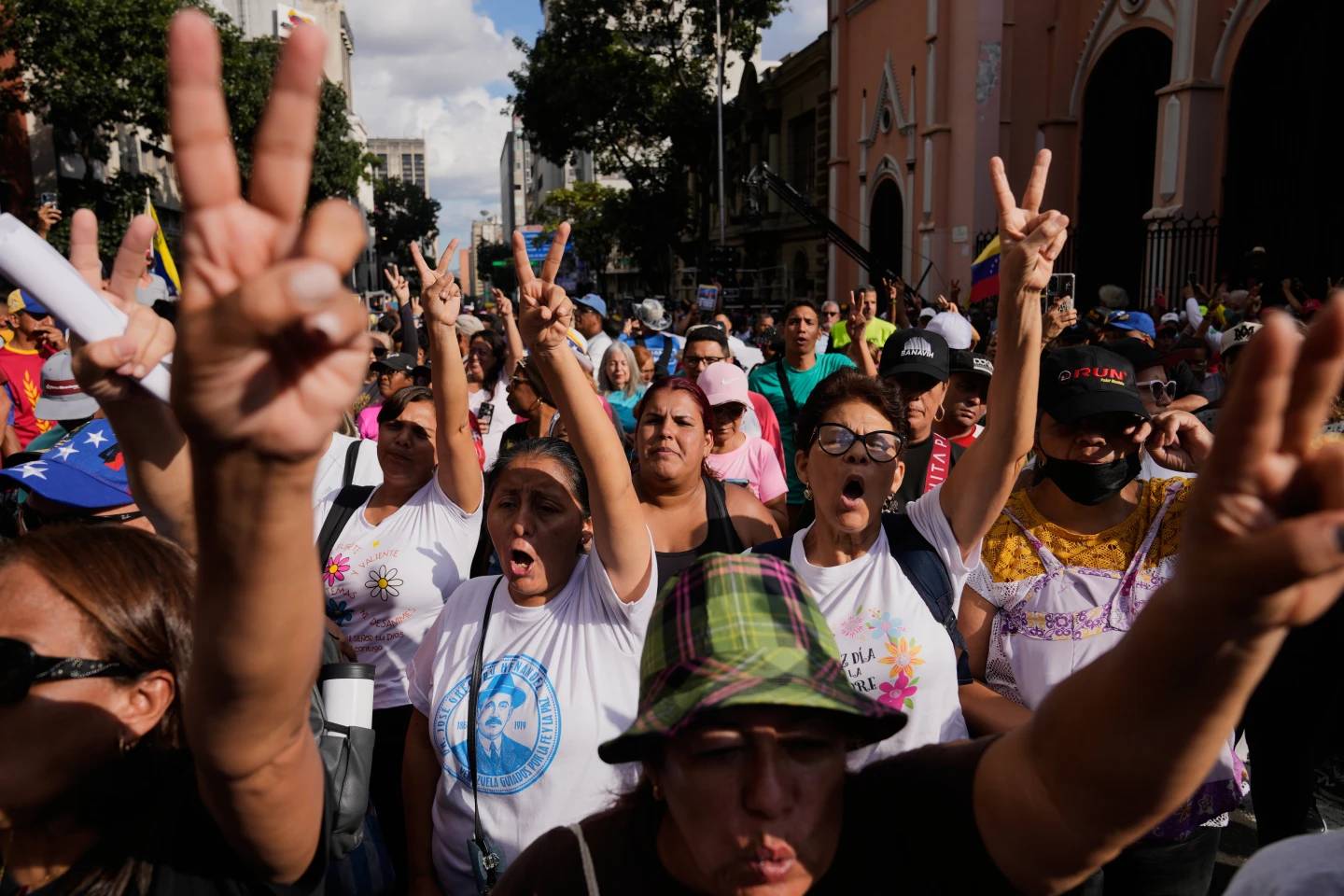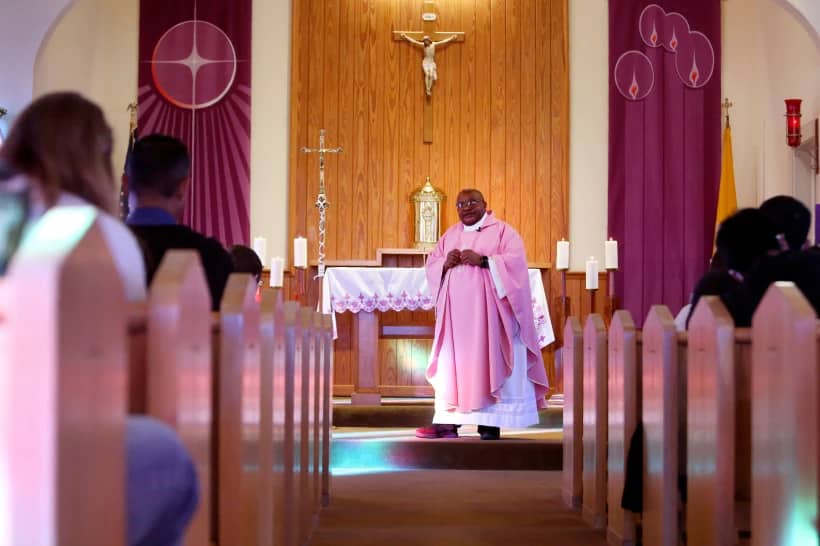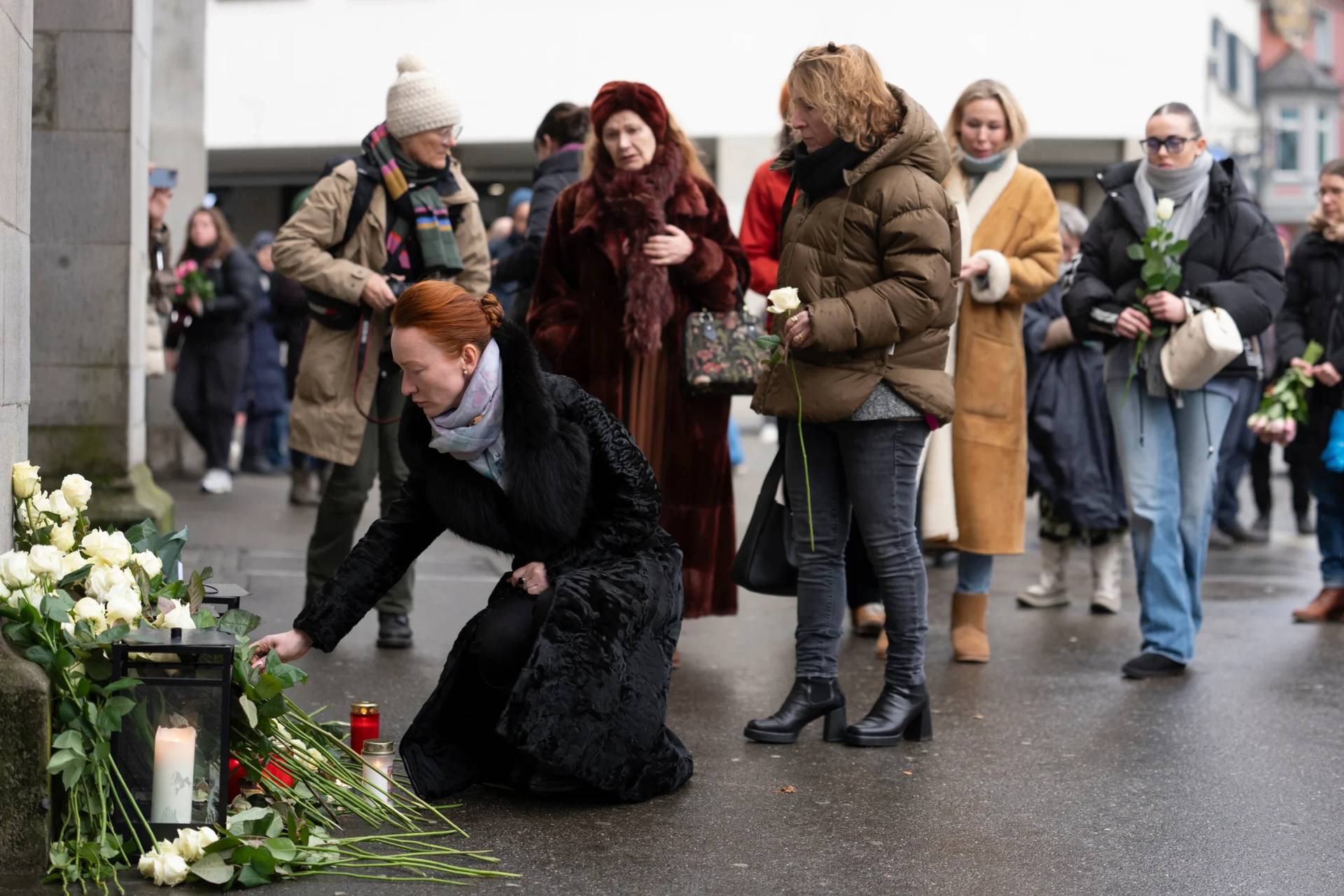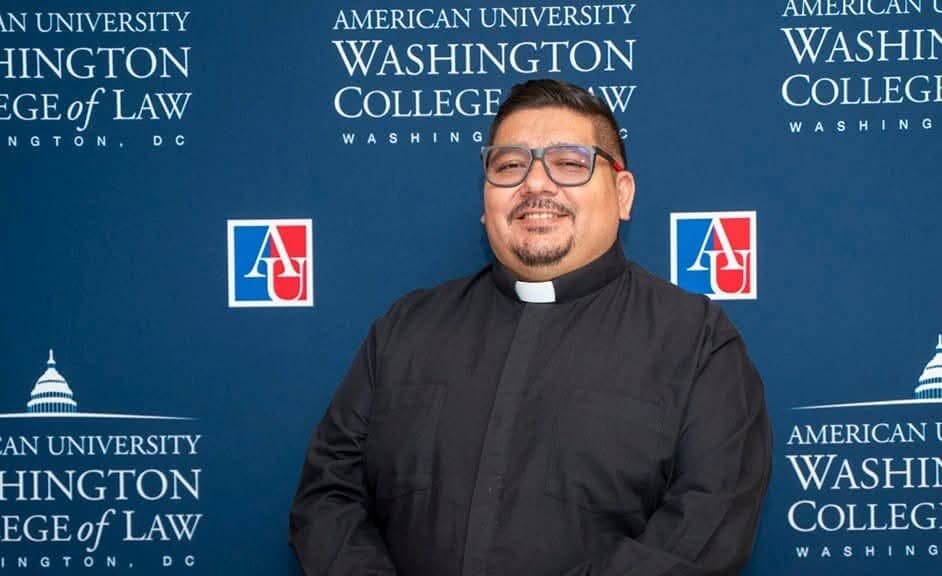NEW YORK — An Archdiocese of Milwaukee priest claimed Thursday that what he calls the “Black Catholic exodus” from the Church in America calls into question the Catholic Church’s credibility and integrity.
“For years, Black Catholics have realized that if we’re going to have a presence in the church it’s going to be up to us to nurture that presence because the wider church has either through neglect or through active suppression has not shown a real sense that they even care that there are Black Catholics in the church,” said Father Bryan Massingale. “I think for its own credibility the Catholic church should be concerned about this.”
Massingale made the comments at a Fordham University Center on Religion and Culture online discussion Thursday, “Black Churches, Black Catholics” that explored a recent Pew Research Center study, “Faith Among Black Americans.”
The report surveyed 8,660 Black adults across the United States about their religious experiences. The data was gathered between Nov. 19, 2019-June 3, 2020.
Massingale, who is a professor of theological and social ethics at Fordham University, noted that 54 percent of Black adults that were raised Catholic still identify as Catholic, but 81 percent of Black adults that were raised Protestant still identify as Protestant.
Sociologist Tia Noelle Pratt notes that through her research racism – both systemic and individual – and where churches close are other factors that drive Black Americans away.
“We see churches closing in our diocese that serve large Black Catholic populations. Black churches bear the burden of that when dioceses decide that churches need to close and parishes need to reorganize,” said Pratt, the president of the TNPratt & Associates sociology firm in Philadelphia.
The Pew study found that 6 percent of Black Americans are Catholic. And though that percentage may seem small, Pratt said it’s important to recognize that 6 percent is millions of people.
“Millions of people isn’t nobody. Millions of people deserve and have earned a place in this discourse and to not be taken for granted and to be a part of that,” she said.
Other notable data in the study identified what Black Americans see as essential parts of their faith. Around 75 percent of Black Catholics said opposing sexism is essential to their faith. Likewise, 77 percent of Black Catholics said opposing racism was essential as well.
A deeper dive into the data shows that Black Americans are more likely than Americans overall to view opposition to racism as essential.
A newer survey conducted by the Pew research team in mid-July – about two months after the death of George Floyd sparked nationwide racial justice protests – found racial and ethnic gaps in support for the protests in houses of worship.
The survey showed 67 percent of Black worshippers said they have heard support for the protests in sermons, compared with 43 percent among Hispanics and 32 percent among whites.
“You put those things together we see a mismatch going on between things that are essential for Black Catholics and how we understand our faith, and the issues that are important to us and it seems that it’s less and less likely that those kinds of concerns are going to be honored in a white congregation,” Massingale said.
“It’s not the whiteness of the congregation that’s a problem. It’s the unwillingness of the white community to engage in those issues, which are existentially important for African American believers and Black Catholics,” he continued.
Towards the end of Thursday’s discussion, Massingale and Pratt were asked why it’s important for Black Americans to stay in the Catholic church.
“When you talk to Black Catholics there’s this sense of this is our home. This is where we’ve encountered the sacred. These rites and sacraments are meaningful to us. We’re not going to let someone take that away from us and more importantly I think there’s a sense of mission that this is where God wants us to be,” Massingale said.
For Pratt, the reason is simple.
“We’ve got to keep pushing. We’ve got to keep fighting the fight and doing the work,” she said.
Follow John Lavenburg on Twitter: @johnlavenburg
Correction. This article was amended to correct a typo.














